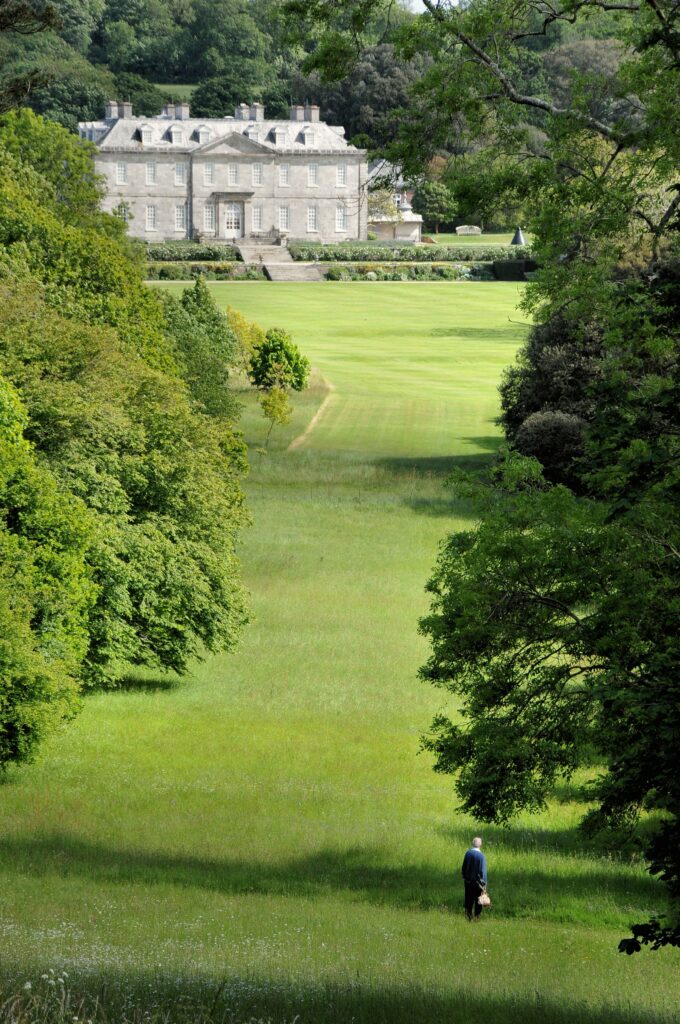The Gardens Trust is saddened by the death of its Vice-President, Sir Richard Carew Pole, who died peacefully at home in Cornwall on 1st December 2024, aged 85.
Dedicated to Cornwall, Sir Richard was President for over 30 years of the Cornwall Gardens Trust, which recently merged with the Cornwall Gardens Society, giving the inaugural talk at its launch at Truro Cathedral in 1989. Richard Stone, previous Chair of Cornwall Gardens Trust pays tribute: “Sir Richard was passionate about gardens throughout his life and in 1988 was instrumental in the founding of Cornwall Gardens Trust. He was always forward looking and positive in his outlook and many of the successes of the Trust are testament to his vision and commitment. Cornwall has lost a wonderful man who served county with huge dedication throughout his life, striving always to promote and improve it. He was a true gentleman, kind and supportive of others and will be greatly missed.”
Sir Richard also founded the Cornwall Professional Gardeners’ Group and was involved in the Eden Project as first Director and then Trustee between 1999 and 2007.
Sir Richard lived at his family estate, Antony, near Torpoint in east Cornwall. Registered at Grade II*, Antony is striking for being almost entirely developed by the family that owned it, with18th century gardens, pleasure grounds, a park for which Humphry Repton produced a Red Book in 1792 (with the proposals largely undelivered), and 20th century gardens and woodland pleasure grounds created largely by Sir Richard’s father, Sir John. It was given to the National Trust by Sir John in 1961, but 50 acres of the gardens are still owned by a family trust.
Sir Richard was a keen gardener and plantsman, magnolias apparently being his favourite, and was awarded the Victoria Medal of Honour in 2007 for his exceptional contributions to horticulture. Antony hosts a National Plant Collection of Camellia japonica), the basis of which was a gift to his father, Sir John, of two wagonloads of camellias and rhododendrons from Sir Lionel Rothschild of Exbury, Hampshire. His distinguished national career included being a Countryside Commission Commissioner, Trustee of the National Heritage Memorial Fund in the 1980s and 1990s and President of the Royal Horticultural Society from 2001 to 2006.
Paul Walshe, Chair of the ICOMOS-UK Cultural Landscapes & Historic Gardens Committee, said of Sir Richard: “He was a lovely man, a great philanthropist and a champion of parks and gardens. He was always interested, appreciative and never high and mighty. I was the National Heritage Memorial Fund’s landscape adviser and always had his support when I advised funding the purchase and/or restoration of historic parks and gardens – Gibside, Painshill (including 100% funding of a restoration and management plan), Sheringham, Calke Abbey and Godolphin come to mind – and historic landscapes notably Orfordness. After the Great Storm of 1987 he enthusiastically supported my proposal that the National Heritage Memorial Fund grant aid the restoration of damaged historic parks and gardens that were owned by trusts, funding their restoration at 100%. Deane Park, Painshill, Petworth, and Borde Hill all benefitted.
When the National Heritage Memorial Fund took on the Heritage Lottery Fund (now the National Lottery Heritage Fund) in 1994, Sir Richard was hugely supportive of the need to allow it to be a bottom up, community orientated funding body concerned with local heritage as well as outstanding national heritage, defining heritage as anything from the past that communities valued and wanted to pass on to future generations. It was a considerable shift of remit for the NHMF, not least in money terms (its annual income immediately rose from £5 million to £350 million), which had been established in 1980 solely as a funder of last resort for outstanding national heritage at risk. I liked him very much and am so sorry he is no longer with us.”
January 2025
Image: Sir Richard Carew Pole at Antony Estate, Cornwall. Copyright Clare Dearden.




